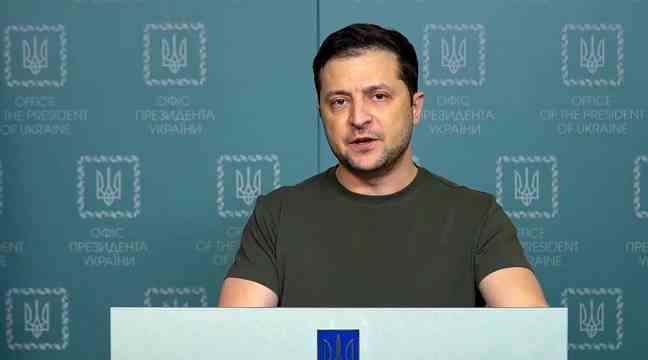The hearing was to be held over two days: the first devoted to the arguments of Ukraine, the second to those of Russia. Finally, the International Court of Justice (ICJ), based in The Hague (Netherlands), will only have sat for a few hours on Monday, Moscow having finally decided not to respond to the accusations brought by Kiev. “They are not moved before a court of law, they are on the battlefield to wage an aggressive war”, denounced, before the judicial body of the UN, Anton Korynevitch, head of the Ukrainian delegation. And to evoke the “Russian bombs and the missiles which fall on our cities”, the some 15,000 people who spend most of their time sheltering in the corridors of the Kiev metro, the “millions” of people in danger … “Let’s settle our differences in a civilized way, insisted the diplomat, representative in Crimea of Volodymyr Zelensky. Lay down your weapons and show us your evidence. »
What evidence is he talking about? Backtracking: Saturday, February 26, two days after the start of the Russian offensive in Ukraine, the government of Volodymyr Zelensky filed a petition before the International Court of Justice. He accuses Russia of using fallacious arguments to justify the invasion of the country. “This war, said Russia, is a way to stop genocide. The very morning of the day he ordered the invasion of Ukraine, the Russian president declared: “we must stop this atrocity, this genocide (…)” It is a terrible lie, that of Putin, and our fellow citizens , the Ukrainians, are dying,” the diplomat summed up.
“Legally, Russia had the means to defend itself”
Clearly: by its request, Kiev asks the international organization to establish that the military action orchestrated by Vladimir Putin is devoid of legal foundations. And therefore it is illegal. It is therefore not a question of determining whether there is a violation of the sovereignty of a State – the ICJ is not empowered to do so in this case – but of knowing whether the 1948 Genocide Convention has been instrumentalized to justify this Russian military action.
“Legally, Russia had the means to defend itself Monday before the ICJ, assures Elsa Marie, doctor of public law and specialist in international law. By using the Genocide Convention even though the substance of the case concerns the ongoing conflict, Ukraine’s approach can in particular be seen as an instrumentalisation of the Court. An argument all the more fragile on the part of Kiev since Russia, if it does indeed speak of the “denazification” of Ukraine, never explicitly relies on the 1948 Convention.
Precautionary measures?
Thus, if Putin’s action is undoubtedly morally reprehensible, is it also from the point of view of international law? The instruction of such a request can take months, even years, but the ICJ must decide in the days to come – probably at the end of the week or the beginning of the next – on possible “provisional measures”, an emergency procedure which allows the situation to be frozen. But if these are ordered, will they be applied?
In theory, the measures taken by this organization are binding. In practice, however, the Court has no binding means. So, if she orders a ceasefire while she studies the Ukrainian request, who will enforce it on the ground? The absence of representatives from Moscow on Monday in The Hague is not an encouraging sign. “Russia knows that international law matters. Otherwise, why would Russia try to justify its aggression? “Nevertheless hoped Anton Korynevich.

